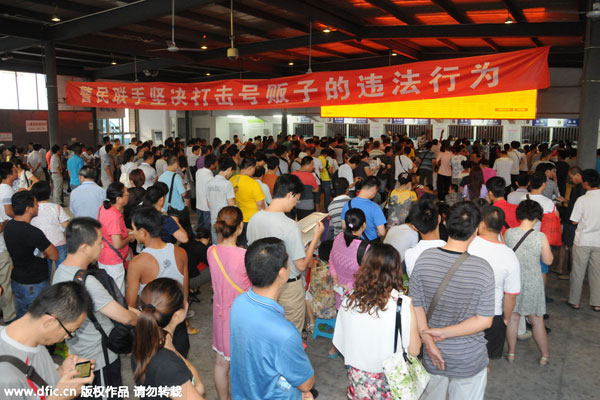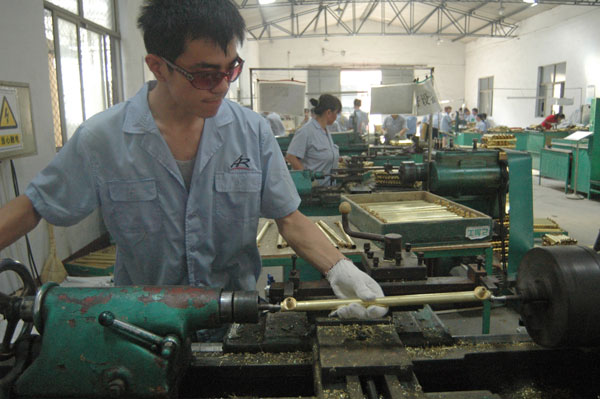No more long queues in China's smart hospitals
Updated: 2015-08-05 20:43
(Xinhua)
|
|||||||||||
 |
|
Many parents queue at Beijing Children's Hospital to make appointment for their children in this file photo. [Photo/IC] |
BEIJING -- The queues in China's overcrowded hospitals are notoriously long, but mobile apps and technology are offering hopes for shorter waits as the country introduces "smart" hospitals.
The Beijing Municipal Commission of Health and Family Planning confirmed on Tuesday that the capital's top-level hospitals will offer patients access to mobile payment services by the end of 2017.
The move is part of a scheme released by China's National Health and Family Planning Commission in January to improve the country's health and medical services, medical management and patient services from 2015 to 2017.
Mobile payment has already been introduced in some Beijing hospitals on a trial basis. Beijing Children's Hospital has offered patients the option to make appointments and pay for services via mobile apps since June 18, said Zhao Chengsong, director of the hospital's outpatient department.
The hospital received 3.37 million outpatients in 2014. "It used to be common to see more than 1,000 patients and family members queuing up in the hospital early in the morning," said Nie Xiaolu, a doctor with the hospital.
Mobile services for appointments and payment have saved time for both patients and medical workers and prevented long lines, Nie said.
The hospital also plans to expand mobile services to more areas, including receiving test results and paying treatment fees, and it will also explore a mobile platform for direct communication between doctors and patients, according to Nie.
Jia Ruofei, a doctor at the Beijing Anzhen Hospital, told Xinhua that mobile payment will lead to a technological revolution in China's medical system, though his hospital does not yet offer mobile payment service.
Beijing Anzhen Hospital received a total of 2.41 million outpatients in 2014, making it one of the top 10 hospitals for outpatient treatment in the city, Jia said. He believes mobile payment will let the hospital operate more efficiently while providing patients a better environment for treatment.
Related Stories
Smart solution streamlines hospital appointment procedure 2015-07-31 10:21
Guangdong Internet hospital a winning use of high-tech 2015-07-23 11:25
600,000 Chinese doctors sign petition against hospital violence 2015-07-20 07:20
Navigating the hospital labyrinth 2015-07-05 15:10
Today's Top News
Turkey says coalition to launch 'comprehensive battle' against IS
17 armed forces take part in Russia military contest
China joins hands with UK for
arts exchange
CPC leaders' annual meet to set economic agenda
Sinopec denies report on recalling overseas staff
China to use satellites, drones, sensors to monitor pollution
View the 'Belt and Road' initiative as a great 'Social Project': Sinologist
Turkey launches airstrikes on PKK targets
Hot Topics
Lunar probe , China growth forecasts, Emission rules get tougher, China seen through 'colored lens', International board,
Editor's Picks

|

|

|

|

|

|






